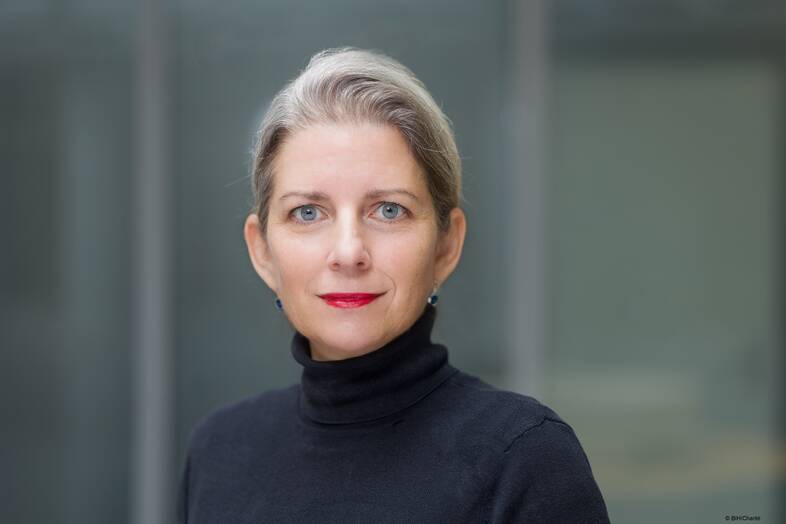Interview | Dr. Elke Luger Head, National Network Office Gene and Cell Therapies

Could you briefly outline the tasks of the Network Office and describe the three most important goals for the current first year?
The Network Office for Gene and Cell Therapies was set up as part of the National Strategy for Gene and Cell Therapies and is based at the BIH. The BIH is responsible for coordinating and moderating this process and bringing together experts from all over Germany. To this end, recommendations were made in eight fields of action by the stakeholders involved and presented to the BMBF and the public. The Network Office has the task of continuing to bring the stakeholders together and to retain the experts from the individual working groups as contacts in the long term, to identify their needs and to jointly develop concepts for translation. We see ourselves as a Germany-wide contact point and platform for national and international players and stakeholders in the field of GCT. We want to ensure that the “GCT Germany” network has a strong and unified voice. Our work is just beginning. For the first year, which is still ongoing, there were three goals, among others, which primarily focused on our visibility: the launch of a website, the development of the first national newsletter on the topic of gene and cell therapies and the design and implementation of the first national entrepreneurship program GeneNovate in the field of GCT. The pilot program was the first of its kind in Germany. We have already successfully implemented all three projects.
What does the National Strategy for Gene and Cell Therapies (GCT) mean for Germany as a whole and for Berlin-Brandenburg in particular? What are the challenges?
GCT is a key issue for Germany as a center of research, supply and business. Not only Germany, but Europe as a whole, has a lot of catching up to do in this area. Only a fraction of the global clinical studies on gene and cell therapy come from Germany, with the rest coming from the US and China. Considering the potential of gene and cell therapy for improving the quality of life and reducing the suffering from diseases that were previously difficult or impossible to treat, as well as the associated market opportunities, more must definitely be done to remain competitive. I also think that the networking concept inherent in the strategy is important for all medical research in Germany and can set a precedent. These changes are also important for Berlin-Brandenburg as a location. Certainly, one of the challenges is that the strategy has to be implemented within established structures that have evolved over decades.
What needs to change to become more successful in the development of gene and cell therapies?
The central keywords here are: networking, optimization, training, the inclusion of patients' needs and the promotion of innovation. Essentially, the structures of cooperation must be improved across a broad spectrum of topics. This includes measures to expand training and further education programs, the optimization of conditions and processes for an efficient technology transfer, and providing the right conditions for spin-offs, start-ups and market authorization. We also need to create a working environment that encourages highly qualified specialists to stay in Germany. All of this is addressed by the national strategy.
In our pilot project “GeneNovate: Empowering Innovators and Entrepreneurs in Gene and Cell Therapies,” for example, we were able to see how great the need for further training programs is. GeneNovate is the first national entrepreneurship program in the field of gene and cell therapies. It was carried out in the first pilot phase in Berlin, Mainz and Munich. The program is aimed at master's students, doctoral candidates and postdocs in medicine, biotechnology, bioinformatics, medical technology or digital health who want to translate their research findings into a medical product. This was very well received. We had around 60 participants in total. GeneNovate is to be rolled out to other locations in Germany as soon as 2025.
How is the cooperation with the HealthCapital cluster going? Do you have any concrete requests of the cluster management?
We are currently working together on the planning for the RegMed Forum in February 2025 which will focus on GMP process development and the translation of ATMP projects, for example. We would like to expand our collaboration in the future, as it has gone very well so far. I think both sides will benefit from this.
Bio:
Elke Luger holds a doctorate in genetics with a focus on immunology, allergology and chronic inflammation. In her research career, she has held positions at the University of Salzburg, the University of Maine, Charité Berlin and the German Rheumatism Research Center Berlin (DRFZ). She then focused on strategic science management. Most recently, she headed the office of the Leibniz ScienceCampus Chronic Inflammation at the DRFZ and set up the national Leibniz Network Immune-Mediated Diseases..
Further links:
Website of the National Network Office for Gene and Cell Therapies (in German) https://www.bihealth.org/de/translation/nationales-netzwerkbuero-fuer-gen-und-zelltherapien
Registration and archive of the GCT newsletter (in German) https://www.bihealth.org/de/translation/nationales-netzwerkbuero-fuer-gen-und-zelltherapien/newsletter
Handover of the strategy for gene and cell-based therapies to the Federal Ministry of Research (in German) https://www.bmbf.de/bmbf/shareddocs/kurzmeldungen/de/2024/06/gen-und-zelltherapie-strategie-bih.html
GeneNovate website with call for application 2025 https://www.bihealth.org/de/translation/nationales-netzwerkbuero-fuer-gen-und-zelltherapien/genenovate
Save the Date – RegMed Forum 2025 https://www.healthcapital.de/veranstaltungen/termin/regmed-forum-2025/
LinkedIn channel of the GCT Network Office https://de.linkedin.com/company/gct-germany



